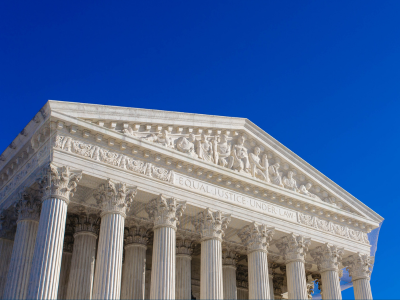In a momentous decision overturning decades of precedents, the U.S. Supreme Court ruled in SFFA v. Harvard/UNC last year that the use of race in college admissions violated Title VI of the Civil Rights Act of 1964 (Harvard) and the Equal Protection Clause of the Fourteenth Amendment (UNC). While the decision was focused on higher education, it has been used to threaten employers over their diversity, equity, and inclusion (DEI) programs.
Two DEI Opponents Use SFFA Against Programs
After Edward Blum’s organization Students for Fair Admission (SFFA) successfully eliminated the use of race in college admissions, he challenged law firms’ fellowships for underrepresented groups through his American Alliance for Equal Rights (AAER). In response, several law firms revised their fellowship programs to eliminate membership in historically underrepresented groups. Other firms removed racial language from the descriptions of their DEI programs, and some have eliminated their fellowships entirely.
Stephen Miller and his America First Legal (AFL) have been filing “civil rights complaints” with the Equal Employment Opportunity Commission (EEOC) seeking investigations into the DEI practices of over 30 large corporations as well as the NFL and NASCAR. AFL has also filed a lawsuit against Meta and film producers saying their diversity program discriminated against whites.
Republican AGs Challenge DEI Programs
Shortly after the Harvard/UNC decision, 12 Republican attorneys general (AGs) sent a letter to Fortune 100 CEOs raising legal concerns over their DEI programs. Twenty-one Democratic Senators sent a response letter, arguing Harvard/UNC did “not directly address or govern the behavior or the initiatives of private sector business.”
Five Republican AGs also send a letter to Am Law 100 firms, arguing the law firms were on notice that their DEI programs and the advice they provided to their clients couldn’t discriminate based on race. Although the AGs threatened investigations and lawsuits into corporate DEI practices, so far none have been forthcoming.
EEOC Commissioners Take Different Views
After the decision, both EEOC Chair Charlotte Burrows (D) and EEOC Commissioner Andrea Lucas (R) responded. While Burrows—along with Vice Chair Jocelyn Samuels (D) and Commissioner Kalpana Kotagal (D)—has said properly implemented DEI programs can make corporations more creative and better able to serve their customers, Lucas has cautioned companies that taking race or gender into account at any point violates Title VII of the Civil Rights Act of 1964, warning that the focus on “equity” in DEI can lead to discriminatory decision making.
Litigation Over DEI Programs
So far employers have been successful in litigation over their DEI training programs. Most recently, the U.S. 7th Circuit Court of Appeals held that Honeywell legally fired a white employee who opposed and then skipped mandatory training that was part of the company’s DEI program. The employee had claimed he needed to oppose the unconscious bias training even though he never attended it.
In a similar lawsuit, the 10th Circuit rejected a claim that a presentation on racial equity was harassment. However, the court did say that such training could be considered harassment if it was severe or pervasive enough.
Finally, the 2nd Circuit rejected a challenge to Pfizer’s Breakthrough Fellowship Program aimed at bringing in more Black, Latino, and Native American workers on the basis that plaintiff Do No Harm—a policy advocacy group that aims to combat what it calls “woke activists” in health care—refused to name its two members who alleged they were unlawfully excluded. Meanwhile, Pfizer—like the law firms challenged by Edward Blum—had clarified that all students were eligible to apply to the program.
In addition, in response to Florida’s Stop WOKE Act, the 11th Circuit blocked the state from enforcing the portion of the Act that barred private employers from certain types of DEI training.
While employers have been generally successful in challenges to their programs, Blum’s AAER received a preliminary injunction from the 11th Circuit against a nonprofit grant provider. Fearless Fund was established to provide grants to black women entrepreneurs, but the 11th Circuit’s preliminary injunction prevents it from issuing its grants. The appeals court found it substantially likely that providing such grants only to black women violated Section 1981’s ban on race discrimination in contracts. Unlike the 2nd Circuit, the 11th Circuit rejected Fearless Fund’s argument that AAER hadn’t shown its unnamed members had standing.
Conclusion
One year after the Harvard/UNC decision, employers have moved away from race- or gender-based DEI programming. Based on the attacks by Blum and Miller, employers have revised their development programs, scholarships, and fellowships to be inclusive of all races and genders. In addition, companies are avoiding numeric diversity goals, statements, or incentives that might be seen as quotas. Employers’ focus should be on ensuring their employment practices do not discriminate based on any protected characteristic.
H. Juanita Beecher is an attorney with FortneyScott in Washington, D.C. You can reach her at nbeecher@fortneyscott.com.

